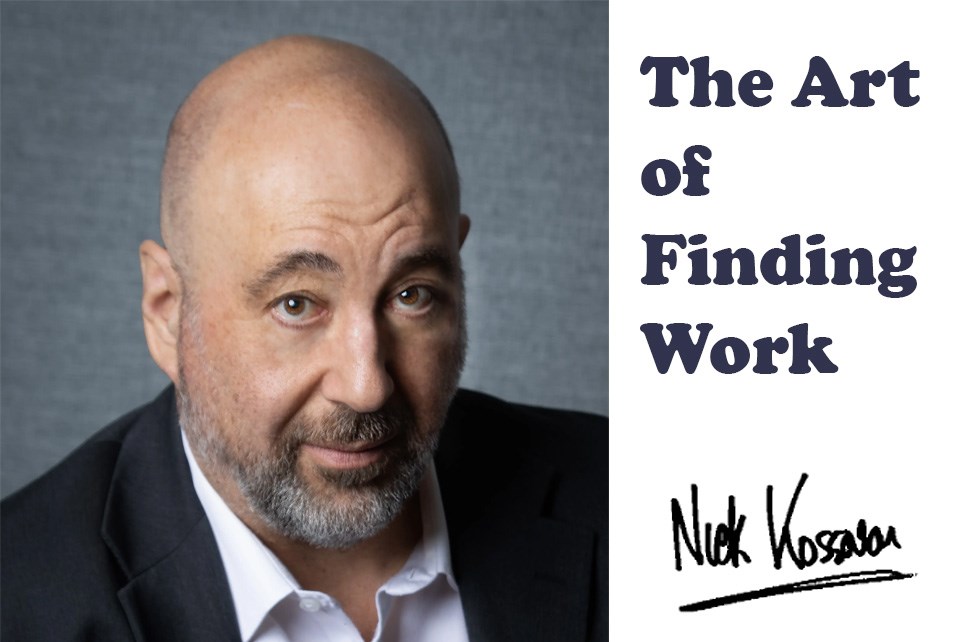Most job seekers struggle with the essence of job searching: selling themselves. Don't kid yourself; a job search is essentially a sales process, and interviews are sales meetings.
Reflecting on the jobs I interviewed for but didn't land, I realize it was because my interviewers didn't see me as providing compelling value to their business or, if I was interviewing with a recruiter, to their client. Even though they saw my potential value from my resume and LinkedIn profile, I failed to convey how I'd add value. I was chasing validation without offering evidence.
It took several conversations with C-suite executives for me to fully grasp that employers aren't charities or welfare organizations. Regardless of an employee's role within a company, all employees are valued contributors and must deliver the expected value — pull their weight — to justify their salaries. Simply put, employers don't stay in business by paying employees more than their respective value contribution merits. Ultimately, I realized that my interviewing mistake was discussing what I'd done (past value) instead of what I wanted to do for the employer (future value) — how I planned to contribute to the company's success. Hence, my interviewers didn't see any value in hiring me.
My interview-to-job-offer success rate changed when a recruiter told me, "It's not the candidate who claims they're the most qualified who gets the interview; it's the applicant who can prove it." From an employer's perspective, which, as a job seeker, you should be acknowledging, being qualified means being able to contribute to the company's success. The easiest way for an employer to assess whether a candidate will "maybe" add value is by evaluating their past performance and results achieved.
The key to securing interviews: Demonstrate a track record of measurable success that benefited your previous employer. Throughout your resume and LinkedIn profile, show, don't tell, as most job seekers do, which is your opinion. I don't know a hiring manager who hires candidates based on their opinions about themselves. Business is all about numbers (metrics); therefore, present numerical evidence to support your claims. Which bullet point makes it easier for a hiring manager to assess a candidate's potential?
- Managed inside sales representatives.
- Managed a team of 12 inside sales reps and achieved an annual quota of $25.6 million for four consecutive years (2021-2024).
- Cleaned the warehouse floor.
- Maintained a 16,000 sq ft warehouse, ensuring it was free of debris and safety hazards.
- Called previous donors to raise funds.
- Made between 60 and 80 outbound calls daily to past donors, increasing donations by 35 per cent since 2021. In 2024, I raised over $2.85 million.
- Managed social media accounts.
- Oversaw four social media platforms — Facebook, Instagram, LinkedIn, and Twitter — reaching a combined audience of 7.6 million followers.
- Followed up on online sales leads.
- Increased conversion rate by 20 per cent by replying to online inquiries within 15 minutes, generating an extra $400,000 in revenue.
Numbers (evidence) highlight key aspects of your career story that matter to employers, such as increases, decreases, savings, speed, revenue generated, and the scope of your work. When job searching, remember the fundamental rule: What you show is what an employer will know.
Because I was good at "showing" my past accomplishments, I was getting interviews. What I wasn't getting were job offers, the reason being I realized that my interview talk focused on what I'd done — water under the bridge — rather than on where I was heading and how the employer would fit into my career journey.
A HR manager once said to me over lunch, "I know candidates roll their eyes at the 'Where do you see yourself in five years?' question, but there's a reason it's asked." She explained that the question isn't to assess the candidate's ambition, career goals, or whether their aspirations align with the company's plans; it's to see how the candidate plans to add value to the company over the next five years. The five-year question is a reminder that an interview is a sales meeting and to stay focused on the hiring truism: Employers hire results, not opinions.
"Over the past three years, I've immersed myself in Five9, which I've used to significantly improve Wayne Enterprises' 130-seat, 24/7 call centre's efficiency and customer satisfaction score. Currently, I'm getting to know Five9's new AI dashboard, through which I can gain insights into my call centre's performance I didn't have before, such as customer sentiment scoring. Every week, my call centre handles over 25,000 calls. Thanks to Five9's skill routing abilities, the average answer time is less than 20 seconds. Judging by the Google reviews, Parrish Communications has a high answer rate. Since you use Five9, which I'm well-versed in, I can leverage it to reduce your average answer time, which will improve your Google reviews. My goal is to become a senior executive at Parrish Communications, overseeing the customer experience."
Your interviewer will see your value if you:
- Demonstrate an understanding of the company's needs and pain points.
- Share your experience in solving similar challenges.
- State that you plan to do the same for the employer.
- Provide an explanation of how being an asset to the company aligns with your career goals.
Nick Kossovan, a well-seasoned corporate veteran, offers “unsweetened” job search advice. Send Nick your job search questions to [email protected]
The commentaries offered on Â鶹´«Ã½AV.ca are intended to provide thought-provoking material for our readers. The opinions expressed are those of the authors. Contributors' articles or letters do not necessarily reflect the opinion of any Â鶹´«Ã½AV.ca staff.




